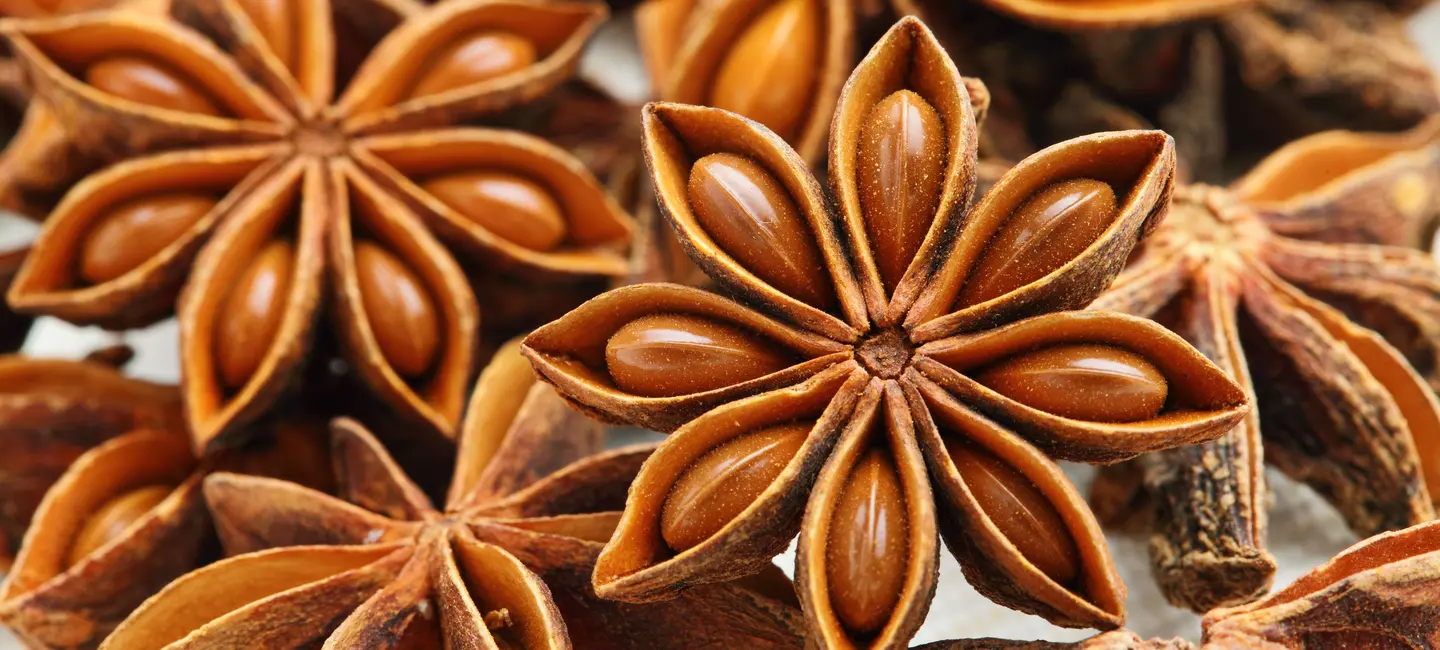
Star anise (Illicium verum) is an evergreen shrub or small tree native to Asia. It’s traditionally used as a spice in food, and also as medicine.
Star anise seeds contain chemicals that might have antibacterial effects. It also contains a chemical called shikimic acid, which is used to make oseltamivir (Tamiflu), a flu treatment. But it’s not clear if star anise itself has antiviral effects.
People use star anise for respiratory infections, stomach disorders, colic in babies, and many other conditions, but there is no good scientific evidence to support these uses.
In 2003, the US FDA warned consumers not to consume teas brewed from star anise due to reports of serious side effects. Some star anise tea products have been contaminated with Japanese star anise (Illicium anisatum), a known poison.
Is It Effective?
There is interest in using star anise for a number of purposes, but there isn’t enough reliable information to say whether it might be helpful.
Is it Safe?
When taken by mouth: Star anise is commonly consumed as a spice in foods. But star anise is possibly unsafe when consumed as a tea. Star anise teas may be contaminated with Japanese star anise (Illicium anisatum), which is poisonous. It may not be possible to tell if a specific product contains only star anise. Star anise can also cause serious side effects when used in large doses.
Special Precautions & Warnings:
Pregnancy and breast-feeding: Star anise is commonly consumed as a spice in foods. But it is possibly unsafe to consume star anise as a tea. It can cause serious side effects. Stay on the safe side and avoid use.
Children: It is possibly unsafe for star anise to be taken by mouth in children. Serious side effects, including vomiting and seizures, have been reported in infants and adults given star anise tea. Star anise teas may be contaminated with Japanese star anise (Illicium anisatum), which is poisonous. High doses of star anise can also cause serious side effects.
It is not known if Star Anise interacts with any medicines. Before taking Star Anise, talk with your healthcare professional if you take any medications.
There are no known interactions with herbs and supplements.
There are no known interactions with foods.
Star anise is commonly used as a spice in foods. But as medicine, there isn’t enough reliable information to know what an appropriate dose of star anise might be. Star anise teas may be contaminated with Japanese star anise (Illicium anisatum), which is poisonous. Speak with a healthcare provider before use.
Anis de Chine, Anís Estrellado, Anis Étoilé, Anis Étoilé Chinois, Aniseed Stars, Anisetree, Anisi Stellati Fructus, Ba Jiao Hui, Badiana, Badiane, Badiane de Chine, Bajiao, Chinese Anise, Chinese Star Anise, Eight-Horned Anise, Eight Horns, Illicium, Illicium verum, Staranise tree.
Information on this website is for informational use only and is not intended to replace professional medical advice, diagnosis, or treatment. While evidence-based, it is not guaranteed to be error-free and is not intended to meet any particular user’s needs or requirements or to cover all possible uses, safety concerns, interactions, outcomes, or adverse effects. Always check with your doctor or other medical professional before making healthcare decisions (including taking any medication) and do not delay or disregard seeking medical advice or treatment based on any information displayed on this website.
© TRC Healthcare 2024. All rights reserved. Use and/or distribution is permitted only pursuant to a valid license or other permission from TRC Healthcare.
